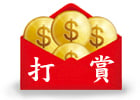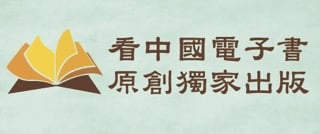《經濟學人》:脆弱政權的下一個皇上 The next emperor (中英文)
(圖說:法新社報導,習近平之能夠脫穎而出,是因為他的派系色彩並不濃厚,可獲其他各路人馬的接受。從而否定了日前網上流傳的「習屬江系」之說。)
毛澤東曾對他的繼承人華國鋒說:「讓你負責,我放心。」但最後證實這是個災難性的選擇。華國鋒在 1978年下臺前還風光了兩三年。十年後,接班的問題又在民主運動的背景下荒唐上演。八年前,胡錦濤繼位。現在,接班的問題又浮上台面。全球應該對此感到緊張,原因之一是不清楚中共下一位領導人的性格,其二是中共的政權遠比外界想像的還要脆弱。
據《經濟學人》21日報導,10月18日在胡錦濤的授意下,中共國家副主席習近平晉升中共中央軍委副主席。這是一個王儲的位置。57歲的習近平是中共已故元老、前全國人大副委員長習仲勛的兒子,近幾年外界才開始熟悉他。
習近平如何爬到這個位置,對於外界來說仍然很神秘。他被指定接班很像北韓的金正恩,金也是在北韓共黨的閉門密會後被授予軍委副主席的頭銜,對外無公開的說明。中共則是在4,600個枯燥乏味的五中全會公報的文字中提及此事。
往好的一面說,習近名曾經擔任過福建、浙江與上海等沿海經濟重鎮的領導,他比較有國際觀,他的妻子是知名歌星。但這些都不足以說明他能擔當軍國大任。另一方面,他的父親曾在文化大革命中被誣陷、關押16年,後被平反。但對於中共的權力核心來說,習近平是個新手,他比2002年剛接班時的胡錦濤還要資淺。中共內部有許多人反對習等太子黨的掌權。未來兩年的接班過渡期將是考驗。
同樣,讓外界感到不安的,不是這個軍委副主席的職位有多重要,而是習近平的默默無聞。從近期中共對外的宣稱顯示,中共的領導階層對於經濟與政改的優先次序意見分歧。
根據中共政府數據,中國的經濟快速增長,但它卻必須面臨過度投資、過度倚賴出口的痛苦調整。五中全會的公報中還揭櫫了新的五年經濟計畫綱領,要求維持增長的步調、薪資階級佔全國所得的比例提高。這對中國和全球都是好事,將有助於縮減中美間的貿易順差。出口企業擔心,如果工資或人民幣增值過快,企業將受傷害。習慣使用廉價信貸、土地與能源的國營企業,也將抵制這些特權被剝奪的威脅。
就政改而言,中共領導人過去30年來都談到民主,但做的很少。網路與手機的快速增長與普及,讓中國民眾比以前更能互相溝通、紓解憤怒、自由地追求夢想,當然也可以攻擊中共當局,現在有些民眾還要求更多治國方面的言論自由。
過去幾週,許多較為開放的國內媒體都在熱情洋溢地談論溫家寶所說的「政改」,但保守的媒體則一直嚴厲審查這些言論。要讓謹慎的胡錦濤在下臺前進行大幅的改革幾乎不可能。五中全會公報還在讚揚中共社會主義體系的政治優勢,僅簡短地提到政改,說它需要積極但穩妥的努力。
習近平會加速政改嗎?外界感到懷疑,因為認為要謹慎處理的中共保守派大有人在。但從實務面來看,脫離共黨控制的努力若失敗,中國經濟的發展將受波及。民眾不滿的爆發,加上中共當局對一般民眾麻木不仁導致的忿恨,目前正在全國的鄉鎮與都市中不斷增溫。據中共官方資料顯示,1993年以來,每四年大規模的群體抗議與暴動超過90,000起。過去,中共領導人依賴經濟的增長來維持穩定。一旦經濟突然暴落,群眾將怨聲載道。
習近平要走的正確道路很清楚:放鬆共黨對群眾不滿的控制、揭開神秘的面紗、進行重大的經濟改革。不過,外界對此並不樂觀。中共在感到政權不穩固時,慣於訴諸民族主義,中共五中全會期間爆發的反日抗議就是明證。
許多西方人士,就連那些主張對於人民幣低估採取貿易制裁的人士都認為,他們的對手是一個自信、理性的成熟政權。這一點他們錯了。這就好像一個偏執、封閉的專製法庭,處理案件已經應不暇給了,現在還要稍微退一步考慮尷尬的交接問題,中共目前的處境也是如此。
The next emperor
A crown prince is anointed in a vast kingdom facing vaster stresses. China is in a fragile state Oct 21st 2010
「WITH you in charge, I am at ease,」 Mao Zedong is supposed to have told his successor, Hua Guofeng. It proved a disastrous choice. Mr Hua lasted a couple of years before being toppled in 1978. A decade later succession plans once again unravelled spectacularly, against a backdrop of pro-democracy unrest. Only once, eight years ago, has China’s Communist Party managed a smooth transfer of power—to Hu Jintao. Now a new transition is under way. The world should be nervous about it for two reasons: the unknown character of China’s next leader; and the brittle nature of a regime that is far less monolithic and assured than many foreigners assume.
The man ordained to take over Mr Hu’s twin roles as party chief in 2012 and president the following year is hardly a household name. On October 18th Vice-President Xi Jinping was given a new job as vice-chairman of China’s Central Military Commission, which Mr Hu heads. This is a position for leaders-in-waiting. The portly son of one of Communist China’s founders, little known to the outside world until a few years ago, Mr Xi is preparing to take the helm of a country with the world’s second-biggest economy and its biggest armed forces—and which is in the midst of wrenching social change.
Quite how he has risen so high in a party that, for all its growing engagement with the world, remains deeply secretive, is unclear. Mr Xi’s appointment was eerily similar to the recent anointing of Kim Jong Un in North Korea: he too was made vice-chairman of a military commission after a closed-door party conclave, without public explanation. China’s leaders at least offered a sentence on Mr Xi’s appointment, albeit at the end of an arid 4,600-character communiqué after the fifth party congress (see article).
On the positive side, Mr Xi has held some big posts in the most economically dynamic and globally integrated parts of the country: the coastal provinces of Fujian and Zhejiang as well as, briefly, Shanghai. He is a relatively cosmopolitan figure. His wife is a popular singer.
But it is impossible to assess how well qualified he is to run the country or how assured his succession is. On the face of it, one engineer whose father was denounced during the Cultural Revolution is handing over to another. But Mr Xi is a relative newcomer to the inner circle; he has not served as long as Mr Hu had in 2002. There are plenty in the party who resent the rise to power of well-connected 「princelings」 like Mr Xi. A two-year transition will be a test.
All this one day will be yours
All the same, it is the immensity of the task, not the obscurity of the man, that should make the world nervous. For all their outward expressions of unity, there are signs of disagreement among Chinese leaders over what the country’s priorities should be—both on the economy and on political reform.
The economy is sprinting along by Western standards, but China faces a hard adjustment to wean itself off excessive investment and exports in favour of more reliance on consumption. The communiqué unveiled guidelines for a new five-year economic plan (see article). This calls for a more sustainable pace of growth, with wage-earners getting a bigger share of the national income. This would be good for China and the world, helping to narrow the trade surplus that annoys America so much. But the change will not be painless. Exporters fear business will suffer if wages soar or the yuan rises fast. Powerful state-owned enterprises, used to cheap credit, land and energy, will resist threats to these privileges.
As for political reform, Chinese leaders have talked about democracy for the past 30 years, but done little. Rapid growth and the spread of the internet and mobile phones have enabled Chinese citizens to communicate, vent their grievances and pursue their dreams more freely than before, so long as they do not attack the party. But some are now demanding more say in how the country is run. In the past few weeks China’s more liberal newspapers have enthused about calls by the prime minister, Wen Jiabao, for 「political reform」. Conservative newspapers have censored them.
There is next to no chance of the cautious Mr Hu bringing in big reforms before he steps down. This week’s communiqué hailed the 「political advantages of China’s socialist system」 and mentioned political reform only briefly, saying—as Chinese leaders so often do—that it will require 「vigorous yet steady」 effort. Even Mr Wen, who will step down at the same time as Mr Hu, has wanted to move at glacial speed.
Expect paranoia and you may be pleasantly surprised
Might Mr Xi speed things up? There is no shortage of conservatives arguing for caution, but there is also a pragmatic argument for change: China’s economic gains could be jeopardised by a failure to loosen the party’s hold. Explosions of public discontent, fuelled by resentment of government callousness towards ordinary citizens, are becoming increasingly common in villages, towns and cities across the country.
The (admittedly patchy) official data show a more than tenfold increase in the annual number of large protests and disturbances since 1993, with more than 90,000 cases reported in each of the past four years. In the past China’s leaders have relied on growth to secure social stability. If and when a more serious slowdown strikes, popular grumbles could increase.
The right path for Mr Xi should be clear: relax the party’s grip on dissent, lift its shroud of secrecy and make vital economic reforms. But the rest of the world would be unwise to assume that reason will prevail. In times of uncertainty, the regime is wont to appeal to nationalist sentiment. Large anti-Japanese protests erupted during the latest party meeting. America and the West have also been subjected to tongue-lashings. The party meeting called on officials to strengthen 「the country’s comprehensive national power」.
Too many Westerners, including those urging trade sanctions over the yuan, assume that they are dealing with a self-confident, rational power that has come of age. Think instead of a paranoid, introspective imperial court, already struggling to keep up with its subjects and now embarking on a slightly awkward succession—and you may be less disappointed.
- 關鍵字搜索:
- 《經
看完那這篇文章覺得


























排序